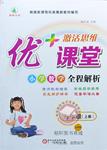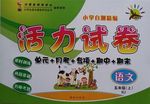题目内容
Dear Lisa,
I am glad to know that you plan to go hiking with your friends in West Hill in my hometown next month. And you will stay in the hill for two days. So I’d like to tell you something about it.
West Hill is one of the most famous hills in my hometown. It is just 20 minutes from my village by bus. I go to West Hill once a month. Spring is a good season to hike in West Hill. It is not cold or hot. The hill is beautiful and you can see trees, birds and waterfalls(瀑布). The biggest waterfall in the mountain is as high as 110 metres.
I can also be your guide. If you want me to help you, write to me.
Yours,
Lucy
小题1:Where does Lucy live?
小题2:Which season is good for hiking in West Hill according to Lucy?
小题3:How often does Lucy go to West Hill?
小题4:What CANNOT people see in West Hill?
小题5:How long will Lisa and her friends stay in West Hill?
I am glad to know that you plan to go hiking with your friends in West Hill in my hometown next month. And you will stay in the hill for two days. So I’d like to tell you something about it.
West Hill is one of the most famous hills in my hometown. It is just 20 minutes from my village by bus. I go to West Hill once a month. Spring is a good season to hike in West Hill. It is not cold or hot. The hill is beautiful and you can see trees, birds and waterfalls(瀑布). The biggest waterfall in the mountain is as high as 110 metres.
I can also be your guide. If you want me to help you, write to me.
Yours,
Lucy
小题1:Where does Lucy live?
| A.In a small city. | B.In a village. | C.In a big town. | D.In a big city. |
| A.Spring | B.Summer | C.Autumn | D.Winter |
| A.Once a week. | B.Once a month. | C.Twice a week. | D.Twice a month. |
| A.Waterfalls | B.Trees | C.Lake | D.Birds |
| A.One day | B.One day and a half | C.Two days | D.Three days |
小题1:B
小题2:A
小题3:B
小题4:C
小题5:C
试题分析:亲爱的丽莎,很高兴知道你计划下个月来我的家乡西山远足。你要在这儿呆两天,所以我想告诉你一些事情。西山是我的家乡最著名的山之一。乘公交车离我们村子才20分钟。我一个月去一次西山。春天是在西山远足的一个好季节。不冷也不热。山很美,你可以看到树、鸟和瀑布。山里最大的瀑布有110米高。我能当你的导游,如果你想让我帮你,写信给我。
小题1:细节理解题。根据I am glad to know that you plan to go hiking with your friends in West Hill in my hometown next month.很高兴知道你计划下个月来我的家乡西山远足,可知答案选B
小题2:细节理解题。根据Spring is a good season to hike in West Hill.春天是在西山远足的一个好季节,可知答案选A
小题3:细节理解题。根据I go to West Hill once a month.我一个月去一次西山,可知答案选B
小题4:细节理解题。根据you can see trees, birds and waterfalls你可以看到树、鸟和瀑布,可知答案选C
小题5:细节理解题。根据And you will stay in the hill for two days. 你要在这儿呆两天,可知答案选C

练习册系列答案
 激活思维优加课堂系列答案
激活思维优加课堂系列答案 活力试卷系列答案
活力试卷系列答案
相关题目